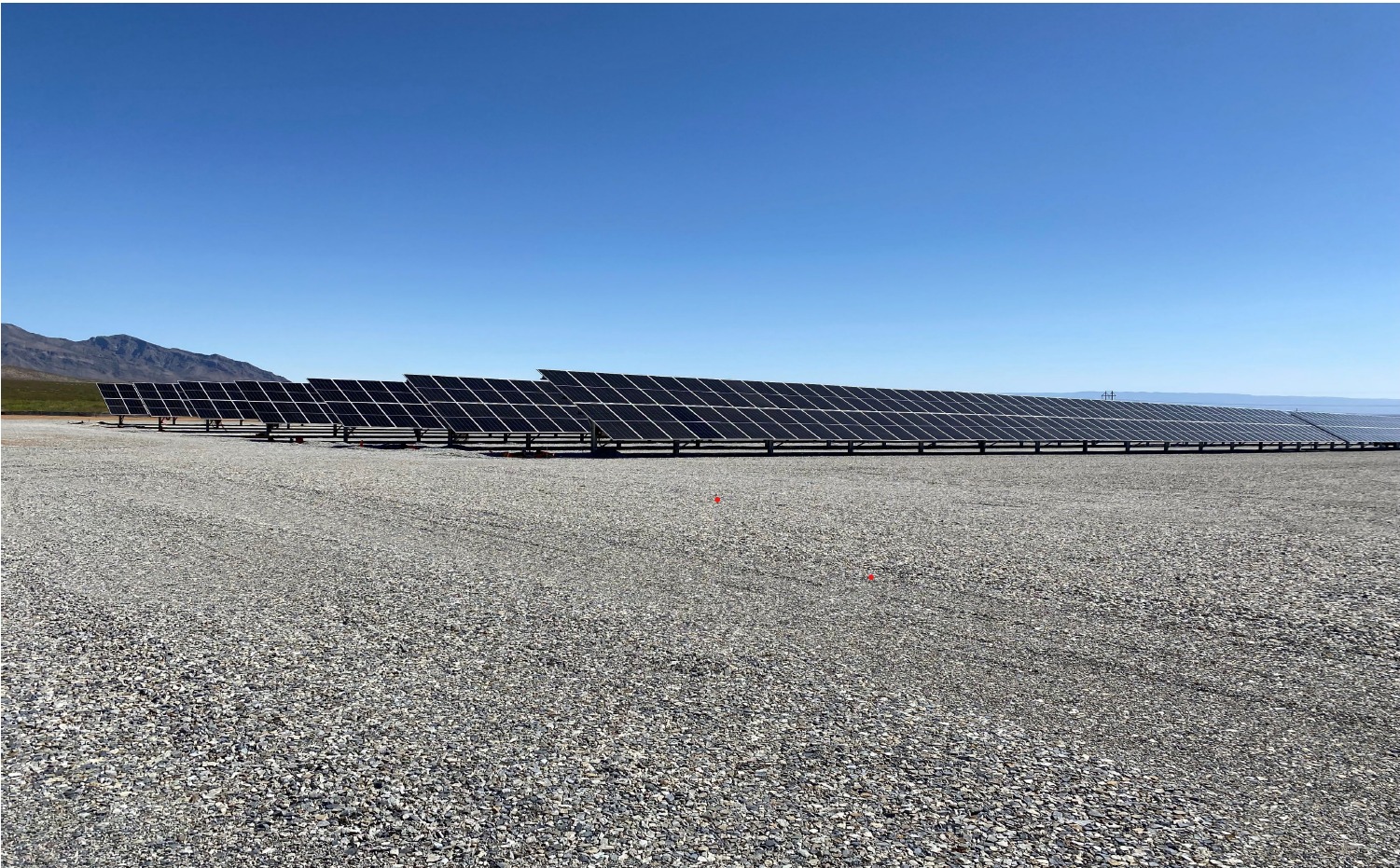When funding becomes available, the new wastewater treatment plant will be state of the art with redundant systems, net-zero energy and net-zero emissions.
Source: U.S. Army White Sands Missile Range (via Facebook)
By Miriam Rodriguez
WSMR Public Affairs
Photo: Courtesy
White Sands Missile Range was awarded a $100,000 grant from the U.S. Department of Energy to advance a net-zero project.
Craig Collins, Energy Manager at WSMR, said WSMR was selected for supplemental funding through the DOE’s Assisting Federal Facilities with Energy Conservation Technologies (AFFECT) grant program.

Collins said WSMR aims to achieve net-zero emissions and energy. With a daytime population of about 6,000 and a history of energy-saving projects, WSMR will use funding to conduct a study to identify opportunities for new net-zero assets, integrate them with existing ones, and explore net-zero possibilities for its wastewater treatment plant. The study will also support bringing high-tech jobs to the region, classified as disadvantaged by the White House Council on Environmental Quality.
The AFFECT grant program, will help the Federal Government achieve President Biden’s goal of net-zero greenhouse gas emissions from all Federal buildings by 2045. Managed by DOE’s Federal Energy Management Program (FEMP), the AFFECT projects will support the transition to net-zero emissions Federal buildings by implementing clean energy technologies such as battery energy storage systems, microgrids, and building automation systems and integrating renewable energy through solar photovoltaics, wind, and geothermal. These projects support achievement of the Federal sustainability goals established in Executive Order 14057 and the Federal Building Performance Standard.
“It is imperative that Federal facilities are able to operate in the face of increasingly intense extreme weather events, and the Biden-Harris Administration is leading by example through its support of energy resiliency and building efficiency measures,” said U.S. Secretary of Energy Jennifer M. Granholm in a DOE release. “Today’s announcement will empower Federal facilities across the United States to upgrade critical infrastructure with cutting-edge, cost-effective technologies they need to improve reliability while saving taxpayers money.”
Collins said he has two goals, one is to look at WSMR as a holistic approach and find ways to integrate what it currently has and what it will need in the future, and the second goal is to start planning for a new wastewater treatment plant.
The current plant was built in the 1950s. When funding becomes available, the new wastewater treatment plant will be state of the art with redundant systems, net-zero energy and net-zero emissions. Solar photovoltaic (PV) power with batteries will be constructed to provide 14 days of backup power to the WWTP and provide carbon-free energy (CFE) resulting in net-zero emissions.
Collins said competition for the AFFECT grant was tough and grant writing is difficult, however he was able to submit an excellent grant proposal and has a path forward to utilize this grant money.
“This grant is Phase I and will provide a study to establish a path to net-zero energy and emissions for WSMR. Once the study is complete and WSMR has shown the DOE that it is an ideal location for new net-zero technologies, I will pursue Phase II, which is another grant for even greater funding in the area of millions of dollars,” Collins said.
If awarded, Phase II funds will be used for actual construction of net-zero technologies.









![Shopping Cart Ordinance Among Most Read Stories in 2024 [#10]](https://lascrucesdigest.com/wp-content/uploads/2024/10/d4232c98-4af6-9a7d-cda9-ccc2add08ae6.jpg)